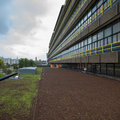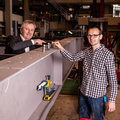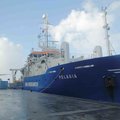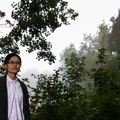News
22 January 2020
Climate adaptation starts (roof) top down

TU Delft is going to become a little bit greener on top: the roof of one of the lecture rooms of the faculty of Civil Engineering and Geosciences has been turned into a sustainable ‘polder roof’. The green blue roof can collect, store and discharge rainwater in a controlled manner. For researcher Olivier Hoes (Watermanagement) the roof is a field lab to research how this smart roof deals with heavy rains and heat stress.
16 January 2020
Flatpack Buildings

Taking apart an entire multi-storey car park in the space of a couple of days and putting it back together again somewhere else without wasting any materials? It may sound like the engineering of a far-away future but it may happen sooner than you think. Recycling materials is common practice nowadays but is it the best solution for the environment? Milan Veljkovic and his team at TU Delft’s faculty of Civil Engineering and Geosciences knew there had to be another way. In partnership with other universities, institutes and companies in the EU they started REDUCE, a project aimed at finding technological solutions which contribute to the circular economy.
12 January 2020
BioXtreme is counting on the supercomputer

How do you go about processing an endless amount of data about the DNA material of micro-organisms? When Marjet Oosterkamp was researching industrial wastewater treatment she turned for help to the national supercomputer: it takes over when the human brain and standard computers have to throw in the towel.
11 January 2020
Storm at sea: the inside story

A subject of rollicking sea shanties the world over, storms at sea have always fired people’s imaginations. But knowledge of what happens underneath the waves is not quite as universal. Femke de Jong, Caroline Katsman and Carine van der Boog are preparing to don their sou’westers to investigate the inside story.
30 December 2019
Water in the sky

Water is of vital importance for human survival. Human activity influences the way water moves around the earth but the complexity of the system is such that it is hard to tell how far-reaching its effects really are. Scientists like Lan Wang-Erlandsson are working hard to chart the earth’s water cycle with more precision. Wang-Erlandsson, who grew up in Sweden, became involved in this area of research when she worked as a volunteer at the annual World Water Week conference in Stockholm.